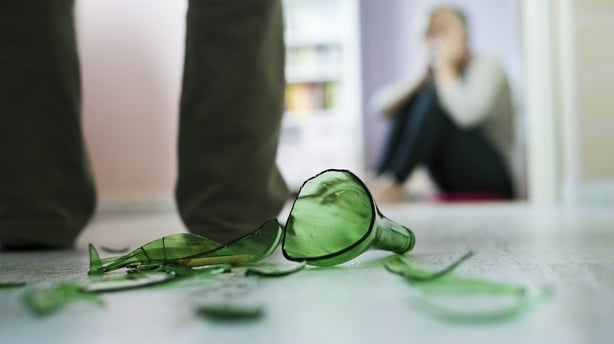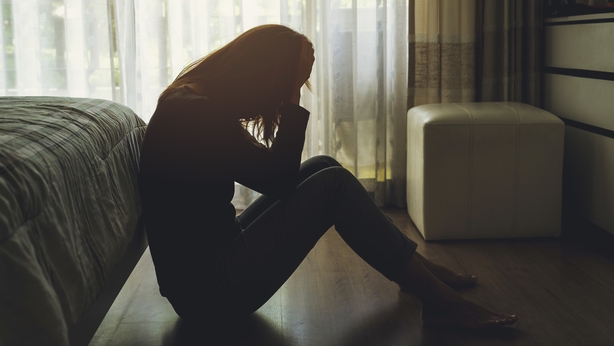Seán O'Rourke spoke to Sarah Benson, Chief Executive of Women’s Aid, on the release of their annual Femicide Report. Listen back above.
The survey has been putting together statistics on domestic abuse and on the violent deaths of women since 1996. One of the findings of the report is a connection between domestic violence and murder of women by their partners.
The Women’s Aid CEO says that the figures on reported abuse are likely to be an underestimate, as women sometimes speak to their helplines under a threat of violence from their partner:
"The way we receive and collate information from our frontline services, it is only where things are offered by the caller in the context of the call, where it’s useful for her to say. So we would estimate that any disclosures of particular forms of abuse because we don’t go through a checklist and ask, are an underestimation of those numbers and so that to us is absolutely chilling."

According to the Report, 87% of women who are murdered in cases that have been resolved are killed by a man they know personally. Husbands and partners make up over half of the men who carry out these murders.
Benson summarised some of the findings: "It is absolutely without doubt that where women are at risk of violent death, it is predominantly in their own home."
The report also reveals that 230 women and 16 children have been murdered since 1996. 5 women have died violently this year to date, 4 in their own homes. Sarah Benson explained that domestic abuse has been found to play a role in situations where women’s lives end violently.
"Often what is revealed is that there were forms of domestic abuse including coercive control, very highly controlling behaviour and other forms of abuse."
In terms of trying to achieve change, Sarah Benson told Seán that in other jurisdictions like the U.K. Domestic Homicide Reviews (DHRs) are carried out. The idea is to take lessons from what has gone before with a view to preventing violent deaths in the future.
"The DHR system in the UK includes the testimony of family members, of her informal community networks, friends and social groups,and in some cases colleagues. Because sometimes a lot of people have small pieces of the picture, and it is only after the fact that when that gets knit together that a much clearer pattern emerges."

A study group is currently in the works to consider putting in place a similar system in Ireland.
Women’s Aid provides a helpline service for women experiencing domestic violence and last year on average it received over 45 calls per day. 17,000 disclosures of abuse against women and 3000 disclosures of child abuse were received last year.
Sarah Benson says she hopes the stigma around women telling their story of abuse is being reduced, because the stakes are very high: "If a woman tells us that she believes her partner or her ex-partner may kill her, we believe her, because we know that tragically that can happen."
You can hear more about Women’s Aid services and the Annual Femicide Report in the full interview here.
Womens Aid 24-7 National Freephone Helpline is on 1800 341 900. Womens Aid Free 'Language Line’ Helpline for people whose native language is not English is on 1800 341 900 8am to 8pm, 7 days a week.
Women’s Aid Text Helpline Text Service for women who are deaf or hard of hearing is on 087 959 7980 8am to 8pm, 7 days a week.


